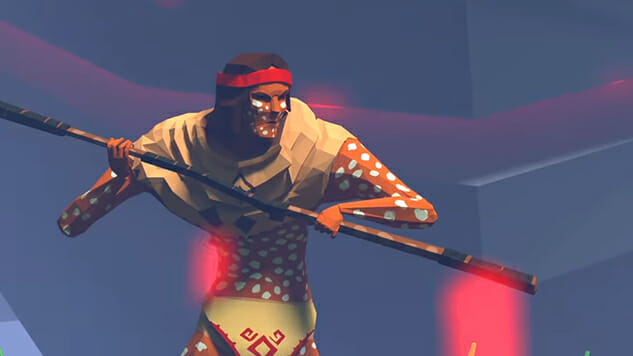
Games are no stranger to using myth and folklore as guide for storytelling. Hellblade: Senua’s Sacrifice, Kid Icarus, God of War, and Jotun: these are just a few games loosely based off ancient mythos. One important thing these four games share with each other is their basis in Greek or Norse mythologies, two cultures whose stories are told so often that it’s become cliche, sometimes even problematic. They’re both subject to a constant cultural recycling seen not just in games, but repeated in textbooks, fiction, movies, and other forms of media. This unfortunately leaves other meaningful perspectives out of the public eye, but now, some game developers are working to change that.
Mulaka, created by indie studio Lienzo, is about a Tarahumaran sukurúame, or shaman, named Mulaka who is tasked with ridding the world of evil beasts that have come to rule it. The Tarahumara are a group of native American people in Northern Mexico, and while the game isn’t meant to provide a complete education on their tribe, it does give a small look into the wonders of their culture, highlighting the folklore prevalent in the Tarahumaran society. Loading screens give brief insight into oral traditions, tales of rainbows made from hateful men, and trees fighting each other for territory. The game is also supported by cultural experts and financial provision from the Chihuahua Institute of Culture and YOREME fund. As stated in a mini-documentary about the making of Mulaka (seen below), Cultural Manager Enrique Servín even sees the game as an attempt to mend the way some people view indigenous people, saying, “We live in a very racist society, a society that has put enormous pressure on minorities, and I think these cultural products help very much in trying to heal these wounds.”
Mulaka isn’t the savior that will stop racism; no game, no one piece of work could ever do such heavy lifting. But the game is a great step in recognizing how many myths and legends of people of color go missing in the media. There’s security in retelling the same stories. Writing about Zeus or Icarus is safe because they’ve been remembered and memorialized time and time again. They’ve become universally recognized, whether it’s through ancient texts or Disney movies. But plenty of cultures have birthed stories that can be universally understood or loved, too. We simply need to elevate them in respectful ways, like Lienzo does for the Tarahumara.
Some of my favorite stories growing up were based in West African folklore. My grandmother bought me a VHS tape filled with tales like Anansi the Spider, Why Mosquitoes Buzz in People’s Ears, The Village of Round and Square Houses, and others that shaped the way I interacted with plot and narrative at an early age. As I grew older, I searched for kids at school who might have watched those tapes or read the same stories. I didn’t have much luck until I could look outside of my hometown and into the wonders of the Internet, but when I did I found that, suddenly, I wasn’t the only one who learned life lessons from them.
Perhaps those old stories wouldn’t make a compelling game, but there are hundreds of others that are just waiting to be retold through digital media. Mulaka may be a bit unpolished in its gameplay, but its faults don’t define it. Rather, it is yet another step in bringing more of the beautiful stories of indigenous people to light.
Shonté Daniels is a poet who occasionally writes about games. Her games writing has appeared in Kill Screen, Motherboard, Waypoint and elsewhere. Her poetry can be seen at Puerto del Sol, Baltimore Review, Phoebe, and others literary journals. Check out Shonte-Daniels.com for a full archive, or follow her for sporadic tweeting.